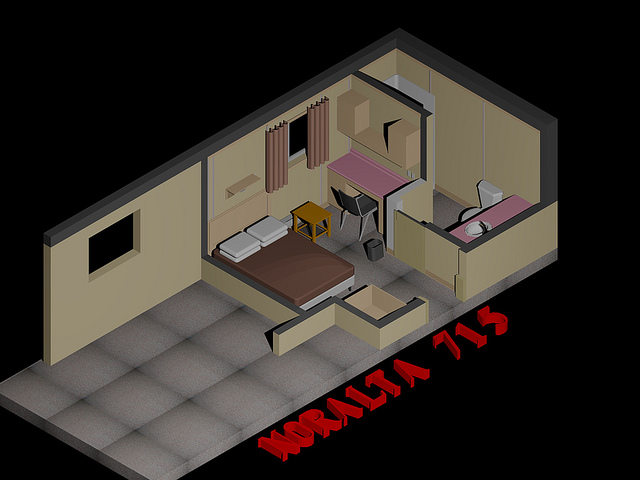For the first time, the federal government has come down on an Alberta employer for misusing the Temporary Foreign Worker Program.
Noralta Lodge is a hotel chain in northern Alberta that specializes in providing accommodations for oilfield workers. After a six month audit, the government found that Noralta provided “false, misleading or inaccurate information” in its request for a Labour Market Opinion, which permits an employer to hire staff through the Temporary Foreign Worker Program.
The resulting punishment landed Noralta on the blacklist and barred the lodge from using temporary foreign workers for two years.
Over time the sectors and types of jobs eligible for the Temporary Foreign Worker Program have been modified, but the core of the program is workers from other countries come to work in Canada for a period of time without receiving permanent immigration status.
Between 2006 and 2014, 500,000 workers have come through the program. In 2013, there were more than 83,000 temporary workers in Canada, and in that year Ontario and Alberta were the top two provinces where temporary foreign workers were employed.
Gil McGowan is the president of the Alberta Federation of Labour, which fields complaints from workers at a variety of Albertan employers. He says the actual number of employers violating the program is much higher.
“Alberta is ground zero for the use and abuse of the foreign worker program… I think it speaks volumes that it took this long for an Alberta employer to be put on the list,” he said.
Concerns about the misuse and abuse of the program have been growing for years, most notably since the federal Conservatives introduced changes to the Temporary Foreign Worker Program in the spring. Among the changes, the government began investigating employers accused of wrong-doing.
Noralta’s manager of communications Blaire McCalla said none of the current workers will lose their jobs as a result of the ban and there would be no effect on Noralta’s business.
“From an operations perspective this ban doesn’t affect our ongoing operations at this time,” she said. Thirty-three of Noralta’s current employees are temporary foreign workers.
Activists who work closely with temporary foreign workers aren’t surprised to hear that Noralta will not be affected by the ban.
“The ban punishes the migrant worker more than these businesses,” Marco Luciano, an Alberta organizer with Migrante Canada wrote in an email. “Their status in Canada is tied to their employer.”
As of June 2014, to be issued a one-year work permit to hire a temporary foreign worker, the employer must have obtained a Labour Market Opinion, which costs employers $1,000 and the work permits can only be renewed once.
Syed Hussan an organizer with Migrant Workers Alliance said the ban shuts down a conversation about the actual work conditions. Neither the government nor Noralta would elaborate on the specific reasons behind the two-year ban but Hussan recommends another course of action for employers who are found to be in violation of the program regulations.
“The solution is improvement of provincial and federal employment standards,” said Hussan.
Many Alberta businesses have spoken out against the June 2014 changes that make it more costly and harder for them to use the Temporary Foreign Worker Program. Hussan does not agree with their point of view.
“Essentially what the employers are saying is ‘our business model requires having a vulnerable workforce,'” he said.
Employment minister Jason Kenney has said Alberta employers need to “put more skin in the game” and improve the salaries, benefits and working conditions in order to hire more Canadians, not to improve the conditions the TFWP operates in.
Luciano views the move as pitting working classes against one another on the basis of immigration status, which is a concern for Hussan as well.
“You can’t call for the closure of the program until you can open another door for people to get here,” said Hussan. “We need a just transition into a system of permanent immigration status.”
Yessy Byl is a labour lawyer who’s worked with temporary foreign workers extensively as an Alberta Federation of Labour employee and now independently, teaching workshops to temporary foreign workers. Permanent residency is the primary issue workers bring up in her workshops.
“The majority of temporary foreign workers have been here anywhere from six to eight years. It’s staggering. They’ve got nothing to go back to. Their lives are in Canada,” said Byl.
Most of the workers she sees are working in low-wage jobs and the Temporary Foreign Worker Program is their only chance at obtaining permanent residency in Canada.
The road from temporary foreign worker to permanent resident is a hard one that depends on the province and the employer. Alberta is one of the provinces that has a provincial nominee program, an agreement with the federal government to allow employers within the province to sponsor their employees.
But with only 5,500 sponsorship spots per year compared to almost 19,000 workers enrolled in the Temporary Foreign Worker Program in Alberta last year, the odds for workers looking for permanent residency are not good.
“The whole thing is just an ugly, ugly set up,” said Byl.
E.K. Hudson is a freelance reporter based in Toronto. She writes and makes radio. Follow her on Twitter @EK_Hudson.
Photo: flickr/jasonwoodhead23



